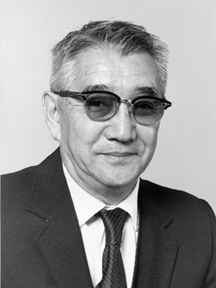 1913-2002
1913-2002
Frank Ogasawara was born in San Diego, California and raised in Battle Mountain, Nevada, where his father was a section foreman for the Southern Pacific railroad. His mother developed tuberculosis and died when Frank was still a boy. He graduated from Lander County High School in 1931 and went to work on the railroad to earn enough money to start college. He started classes at UC Davis in 1939, but in 1942, when the campus closed, he went to Utah where he worked in the sugar beet fields, harvested fruit, and processed turkeys. He also married Kay Inouye, originally of Carlin, Nevada, in 1945. After the war, the couple returned to Davis, where Frank continued his education, earning his BS in 1949 and PhD in 1957.
The Department of Poultry Husbandry hired Frank in 1957; he worked his way to full professor long before he retired in 1983. When you eat your Thanksgiving turkey, think of Frank - he pioneered research on artificial insemination in turkeys. He also developed methods for freezing turkey semen and identified the sperm nests in the oviducts of turkey hens that allow prolonged fertility from a single mating. Dr. "O" was an outstanding undergraduate advisor, mentoring more than 500 students. He was senior author or co-author on 83 publications. Perhaps his best known article is one on long-tailed fowl published in 1970 in National Geographic. He was a founder of the Raptor Center on campus and worked hard to establish it as a raptor rehabilitation and teaching center.
Frank shared his expertise with counterparts all over the world, including Japan, Scotland, Brasil, and China, as he travelled on overseas assignments. He served as chairman of a USDA-sponsored national turkey research study committee (1978-9). He was awarded the National Turkey Federation's Outstanding Research Award for pioneering studies in avian artificial insemination (1966), the Poultry Science Association's Ralston Purina Outstanding Teacher Award (1976), the honor of Fellow of the Poultry Science Association (1982) for his outstanding teaching and research contributions, and an honorary member of the Japan Zootechnical Society (1991).
He was a selfless volunteer in both his professional and personal life. Many campus and community organizations owe their current vigor to his efforts, including Phi Kappa Phi honor society, AARP, and the Catholic Community of Davis. Shortly before he died, one of the Colleges at LaRue, a campus residence complex, was named for him.
